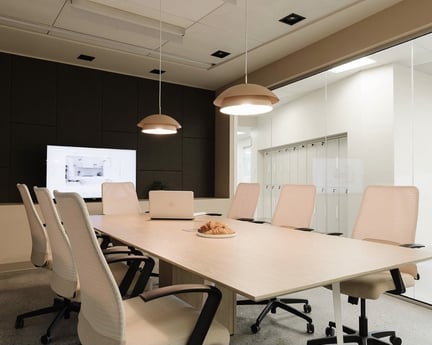Break the isolation and join a dynamic community
Trouvez l’espace de travail idéal pour vos besoins où tout est pris en charge. Concentrez-vous sur ce qui compte vraiment, on s'occupe du reste !
What do we have to offer?
At Hedhofis, we adapt to your needs, even the most unique ones! Let us know what you're looking for, and we'll find a solution that works for you.

Want to impress your clients?
A professional space, tailored to your needs. Enjoy a turnkey environment without the hassle of daily management.

Tired of working in your basement?
The dedicated desk is perfect for getting out of the house and enjoying a network of spaces located in the most sought-after neighborhoods in Quebec.

Really, your home address for your business?
Our mailing address service is the perfect solution for businesses needing a professional address. Simple, efficient, and we handle the mail for you !

Need a place to meet with your team?
Perfect for professionals or entrepreneurs looking for a place to meet with colleagues, a partner, or a client.
Discover all our locations
24/7 access in all our spaces.
Take advantage of a free trial day!
Short or long term subscriptions.
Our Partners
At Hedhofis, we believe in the power of connections. Thanks to our partners, we're able to offer even more value to our community : exclusive perks, helpful resources, and meaningful collaborations. Discover the companies we're growing with :






We offer coworking spaces and packages tailored to your needs.
Our packages will meet your needs, whether you are a professional, a self-employed worker or a microbusiness. Highly flexible, Hedhofis offers both open-plan workstations and closed offices. The ideal opportunity to discover the advantages of a collaborative space and to enjoy life at work in a stimulating and attractive setting.

A space that boosts productivity and accelerates your business growth.
With its dynamic environment that stimulates creativity, productivity and chance encounters, Hedhofis is much more than a workspace. It encourages collaboration and the sharing of knowledge and experience.
Enjoy access to the entire Hedhofis network with most of our packages.


Hedhofis: a stimulating coworking space network that favours collaboration for a work life beyond compare.
A service offering designed to maximize productivity and guarantee an unparalleled quality of life and work experience.














